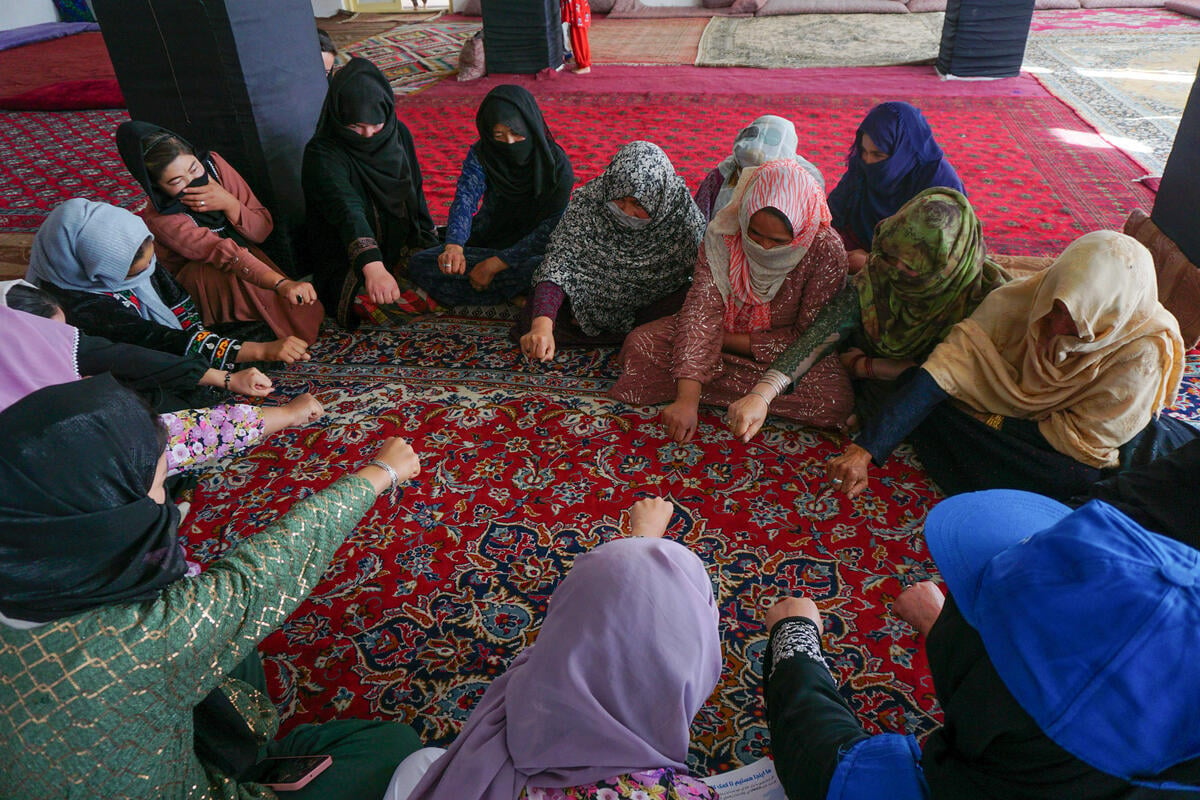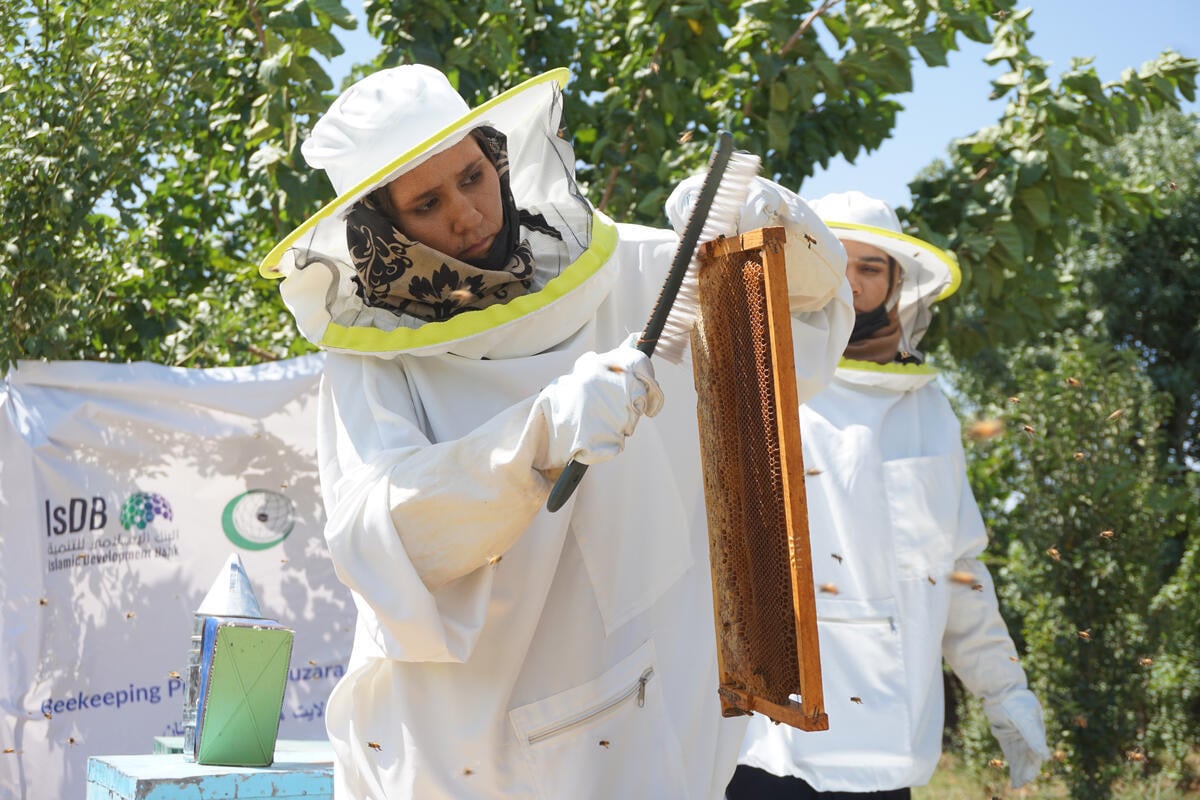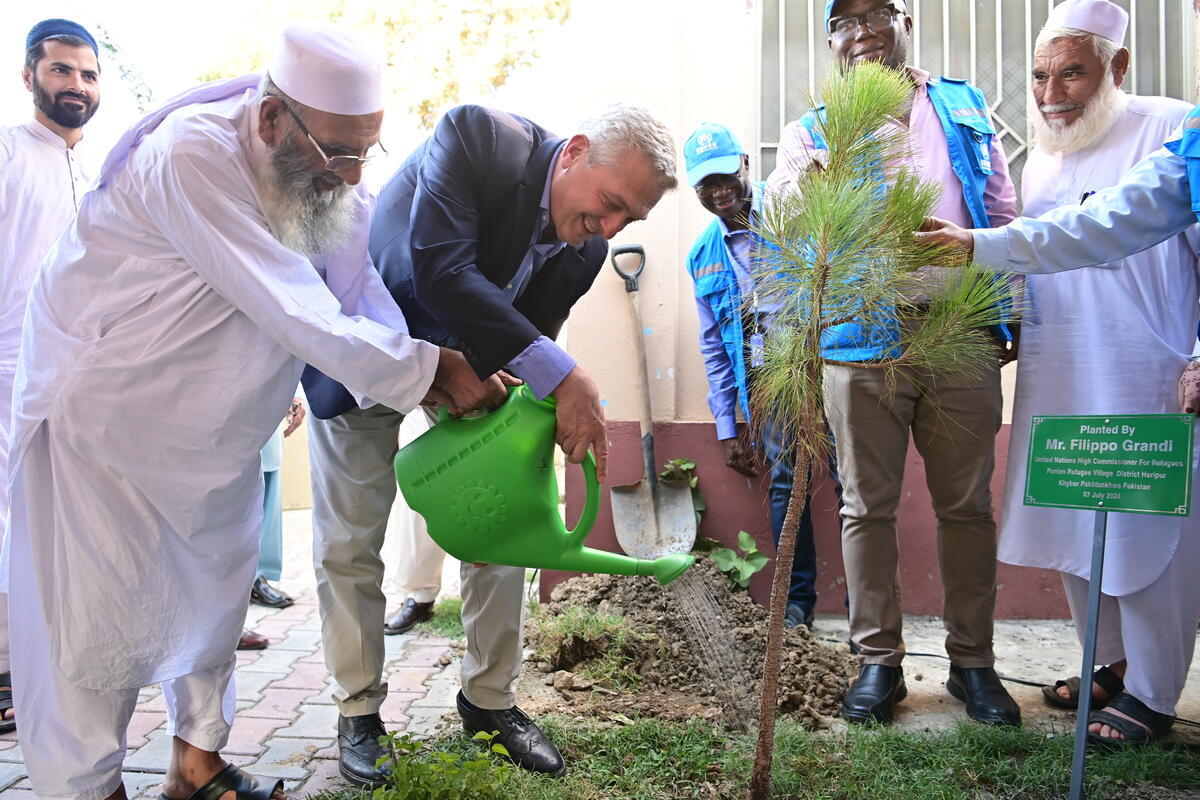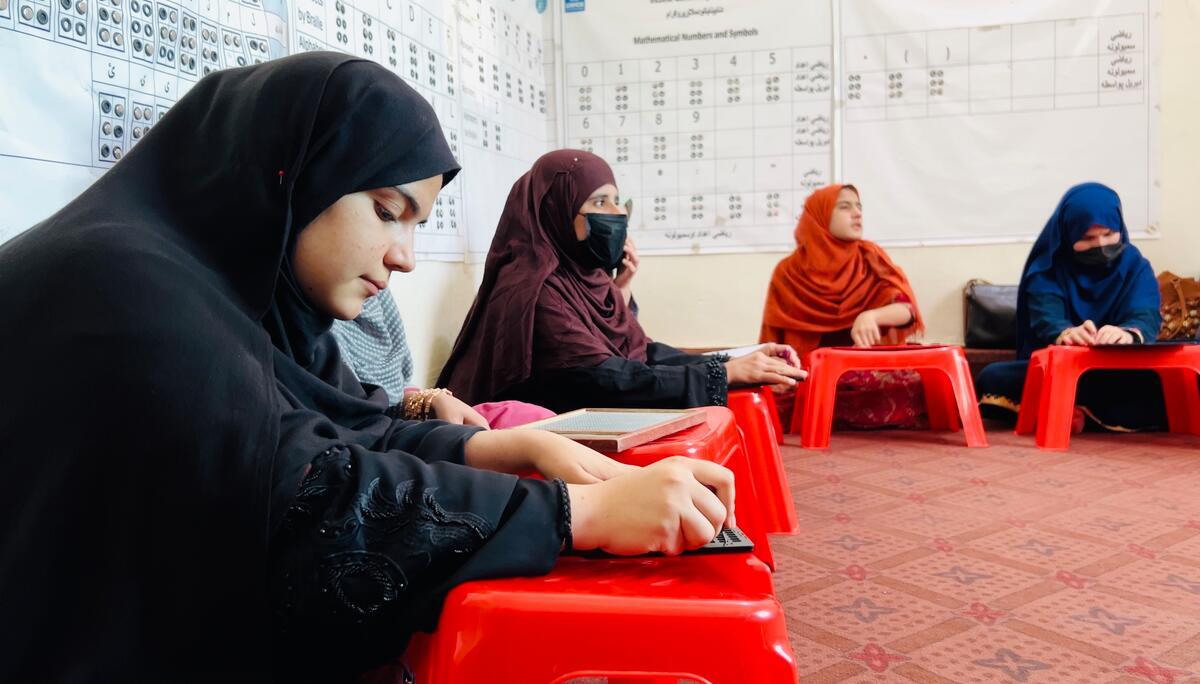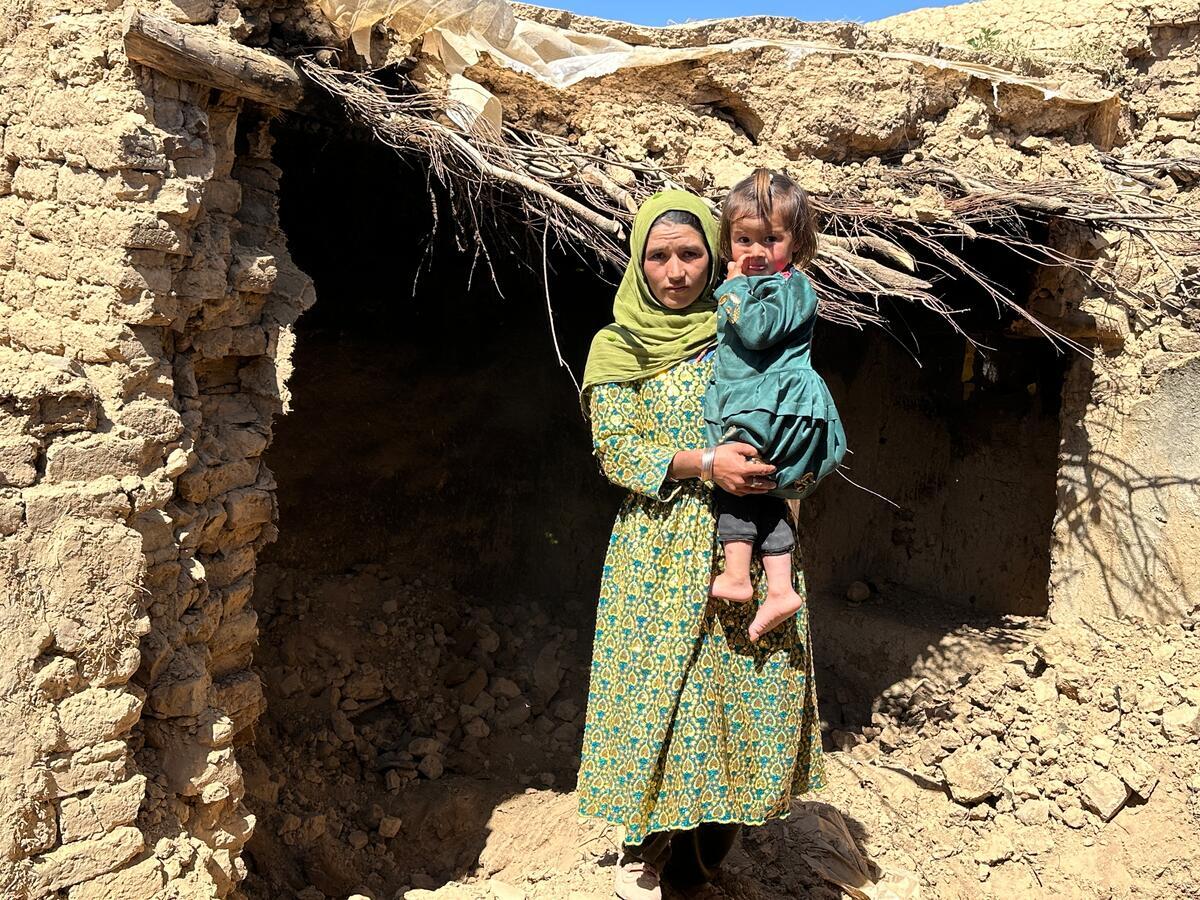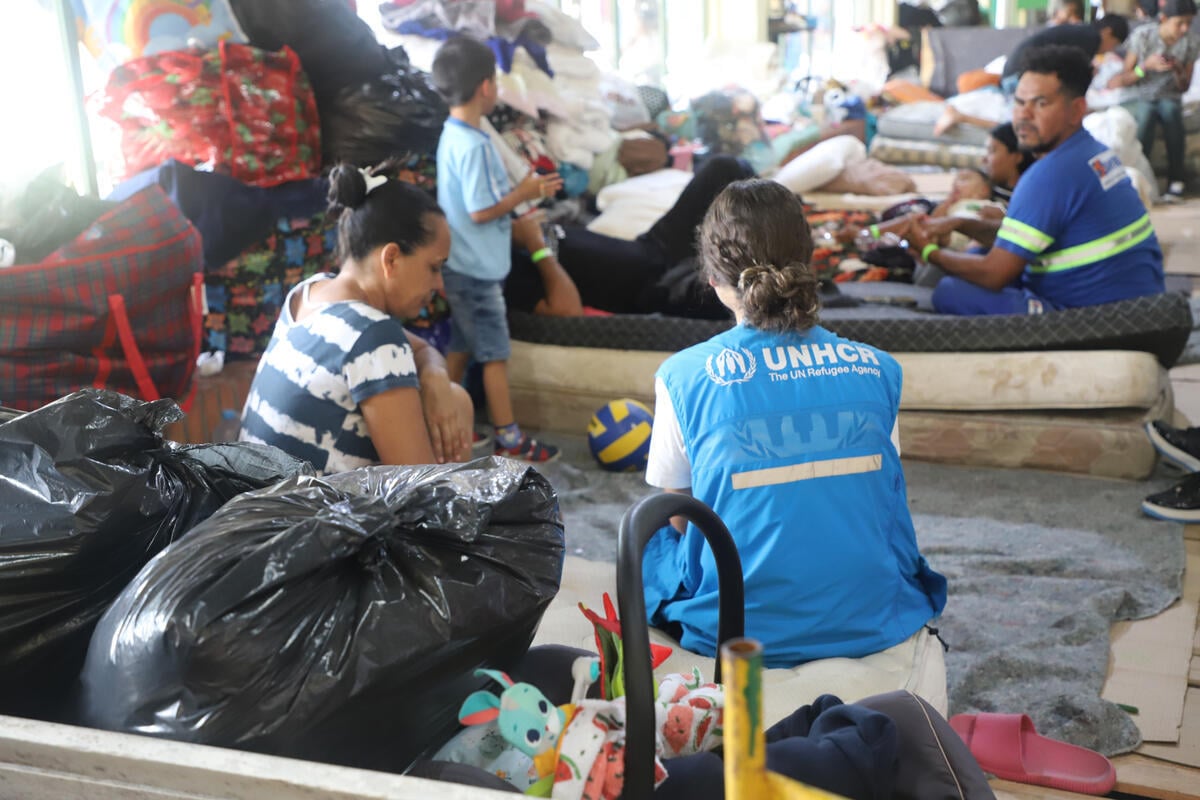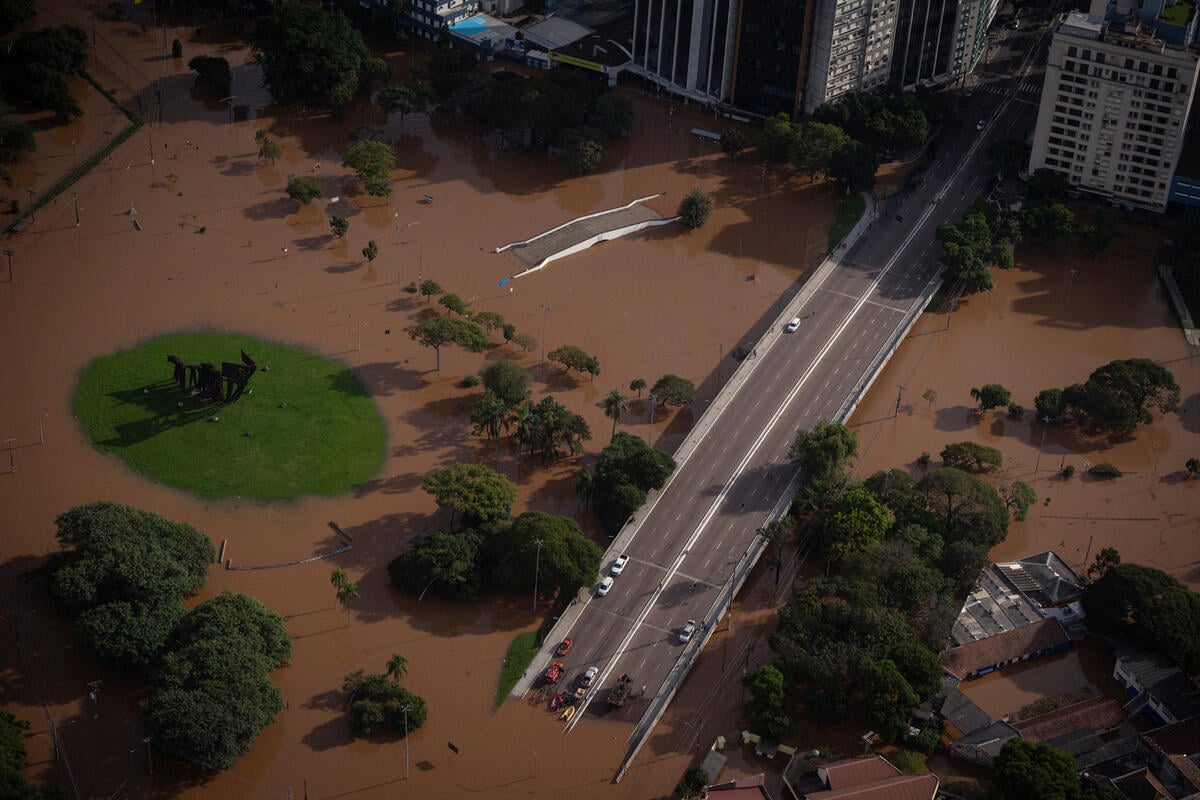Feature: Nomads in no man's land - The Kuchis in southern Afghanistan
Feature: Nomads in no man's land - The Kuchis in southern Afghanistan

KANDAHAR, Afghanistan (UNHCR) - Panjway, less than an hour from Kandahar in southern Afghanistan, used to be a flourishing region, famous for its grapes and watermelons.
After four straight years of drought, the great river Arghastan has gone dry, and the people who sought refuge here now find themselves in the same conditions from which they fled. When the Taliban government was still in power, it carried out a spectacular relief operation with planes and trucks, even transporting donkeys and camels by helicopter. But the desert has continued to advance and Afghans are again caught in its grip. The livestock they once owned is all dead or sold. They no longer know where to go.
There are more than 400,000 displaced Afghans in the south. By far the majority are nomadic shepherds, the Kuchis, who used to migrate hundreds of kilometres with their beautiful flocks, some families possessing as many as 500 sheep. But today, all that remains of their former prosperity are a few live animals and a bit of yoghurt diluted with water - the shalambe that many of the nomads feed themselves with.
All told, the UNHCR team has 200 tents today to distribute in 11 camps in Panjway. Another 800 tents will follow in the next few days, along with blankets and jerry cans for water that the women and children go begging for in nearby villages - if they can still get any. Lately the owners of the wells have been denying the thirsty nomads access to them. They say the water is running out and they need it to irrigate their vineyards.
The area is hot as an oven even at night. Naturally our few tents have to go to those most in need. But it's not easy because at first sight, they all seem to be in dire condition. Many families live in the shadows of rags hung over sticks bent by the wind.
Our trucks advance with difficulty in the bed of the former river. The heaviest one gets stuck in the sand and now we have to shuttle the tents, loading and unloading them into the two smaller and more manoeuvrable trucks. The tents aren't exactly light: 80 kg apiece. They're good tents, donated by the Red Cross, sturdy enough even for the winter.
When we begin to distribute them, it's already so hot that it's hard to talk. A sandstorm is blowing and our tongues are drying up in our mouths. In the course of the day, it will reach 54 degrees C. My interpreter, Sultan, a handsome 25-year-old, has forgotten his turban. An old man unwinds his own and puts it on Sultan's head. Without it, he won't last.
Wherever we move the trucks, hopeful crowds follow us. But only a few people have the ticket needed to receive a tent. Meanwhile I make the rounds of the camps to make sure the selection was done properly, sticking my head into the shelters.
General conditions are very poor, and the condition of the children is plain awful. Many of them are ill. They are covered with blisters, their eyes are burning with fever, but they receive no medical assistance. They lie in the dust, their skin the same colour as the dust. They don't rise a hand to shoo the flies away. In many tents, they sleep on the bare ground with their faces on the sand while I speak to their parents, who, to be honest, look like their grandparents.
Their illnesses: diarrhoea, malaria and festering sores. Their immediate needs: food, water and shelter.
I don't know how anyone can live in Panjway. We're here only a few hours a day, and those few hours leave a mark on us. What about the people who have been living here for months, for years?
We reach the last camp around 4 pm. The sun is still baking. The people here seem to be in even worse shape, if that is possible. One tent out of two is a bundle of rags flapping in the wind. It gives no shelter from either sun or sand. Motionless figures squat beneath the scraps of cloth. The eyes of the children glitter in their dirty faces. The women have only one eye visible; the rest is covered with a veil.
We have only 14 tents left, one for every 20 families. While the other members of the team prepare for the distribution, I look for someone to talk to and the leader of the camp comes staggering up to meet me. He's a tall, very thin old man with hollow cheeks and few teeth. We have a hard time understanding each other because the scalding wind is blowing sand in our faces.
We take shelter inside his tent, which is a very poor one. On the ground are a couple of thin, ragged quilts, a bit of something wrapped in patched cloth, a motor-oil can with water, two glasses and a jug: these are the possessions of the village chief. Other old men soon join us. They enter the flapping tent with a silent bow and crouch down in the dust.
They are Kuchis coming from the Reg Desert. Many are Pashtuns, others are Baluchis. They have lost all their possessions to the drought. They used their last donkeys and camels to get here, then sold them out of hunger. Now, out of 240 families, not one possesses a single sheep. The mullah says his flock used to number 600. Perhaps he's exaggerating, but even so, it means that this emaciated old man was once rich.
"Where did you graze your flocks in the summer?" And in chorus the old timers begin to rattle off names, waving their arms. As I write, my pen squeaks and I have to clean the dust blowing in through the rips in the tent from the pages of my notebook. The elders answer my questions all at the same time and Sultan has a hard time translating. I lose my patience and have the brazenness to take them to task. After all, the information will help us to help them and it has to be precise. Short answers. We want numbers, yes's and no's, not speeches.
Usually, when you ask an Afghan how many children he has, what he does, and how many years he has been in exile, he does not reply "Five" and "Shepherd" and "13", but usually sets off on a half-hour harangue. And he thinks that the louder he shouts, the more weight his words acquire.
But it's not like that this time. The old men understand and cut it short.
I ask them if they are prepared to quit the nomadic life, to abandon their Kuchi customs, perhaps forever. There is an assumption (a very politically correct one) that the Kuchis can never adapt to anything other than shepherding their own flocks. Their free and roving nature won't allow them to settle down in one place. And so humanitarian organisations are wary of sticking their noses into the nomads' cyclical existence; no one, good heavens, wants to be blamed for having destroyed a whole people's traditions.
But in truth, the Kuchis are quite prepared to do whatever work they can to make a living. The logic of survival says so. They can hoe the earth and harvest wheat; all they need is the opportunity. Now they haven't got anything and are dying of hunger.
Food, food, food, this is their refrain.
It's not a manner of speaking. "We don't have anything left in this tent," the village chief tells me. Then another old man takes out a little dusty bundle. He unrolls it delicately, as if there was something precious inside. He unveils two little pieces of squashed bread, dried and black. One piece is already half eaten. It's all his family possesses. They have nothing else for supper and the next day, and no money to buy more.
Instead of being accompanied by the usual shouts, the old mullah says this in the perfect silence of the tent, where everyone has suddenly stopped talking and is looking into empty space. And I seem to have understood the last phrase without Sultan translating it from Pashto: "This is all we have to eat."
My heart doesn't skip a beat on seeing the two miserable objects, the two dried tortillas wrapped in a rag, and I ask Sultan to please translate the following sentence: "I'm very sorry, I'm sincerely saddened, and our organisation is doing and will continue to do all it possibly can within the limits ... within the limits of the available ... within the limits of its resources ..." But I have to stop, Sultan is unable to translate. At the sight of the bread, his eyes have filled with tears, he is trying to hold himself back but can't; he bursts out weeping. He turns his head, lowers it and covers himself with his hand. The sight of that dried-out bread - pity mixed with shame.
A few minutes of silence go by, perhaps more. No one speaks. Two or three old men have tears in their eyes too. They hide them with their turbans. I go up to Sultan and dry his cheeks with my thumb. I tell him he has to help me speak to these people. Perhaps the importance of the work will free him from his emotions.
My own emotions remain blocked inside me. I can't let them go. The next morning, I feel as if I've taken a beating. My thighs hurt, so do my face and shoulders. My hands are shaky. I was supposed to go out again, but fortunately, they were short of vehicles and the mission was cancelled. So I can hide here to write my report.
The situation of the Kuchis is appalling. I have to let the world know about it, or at least the small humanitarian-aid world, with its lack of funds, its dwindling budgets. Everyone has to know that there are old people and children who are literally dying of hunger, thirst and heat, grinding their teeth in the dust.
By Edoardo Albinati
UNHCR Kabul

